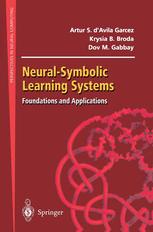

Most ebook files are in PDF format, so you can easily read them using various software such as Foxit Reader or directly on the Google Chrome browser.
Some ebook files are released by publishers in other formats such as .awz, .mobi, .epub, .fb2, etc. You may need to install specific software to read these formats on mobile/PC, such as Calibre.
Please read the tutorial at this link: https://ebookbell.com/faq
We offer FREE conversion to the popular formats you request; however, this may take some time. Therefore, right after payment, please email us, and we will try to provide the service as quickly as possible.
For some exceptional file formats or broken links (if any), please refrain from opening any disputes. Instead, email us first, and we will try to assist within a maximum of 6 hours.
EbookBell Team

4.7
36 reviewsArtificial Intelligence is concerned with producing devices that help or replace human beings in their daily activities. Neural-symbolic learning systems play a central role in this task by combining, and trying to benefit from, the advantages of both the neural and symbolic paradigms of artificial intelligence.
This book provides a comprehensive introduction to the field of neural-symbolic learning systems, and an invaluable overview of the latest research issues in this area. It is divided into three sections, covering the main topics of neural-symbolic integration - theoretical advances in knowledge representation and learning, knowledge extraction from trained neural networks, and inconsistency handling in neural-symbolic systems. Each section provides a balance of theory and practice, giving the results of applications using real-world problems in areas such as DNA sequence analysis, power systems fault diagnosis, and software requirements specifications.
Neural-Symbolic Learning Systems will be invaluable reading for researchers and graduate students in Engineering, Computing Science, Artificial Intelligence, Machine Learning and Neurocomputing. It will also be of interest to Intelligent Systems practitioners and anyone interested in applications of hybrid artificial intelligence systems.